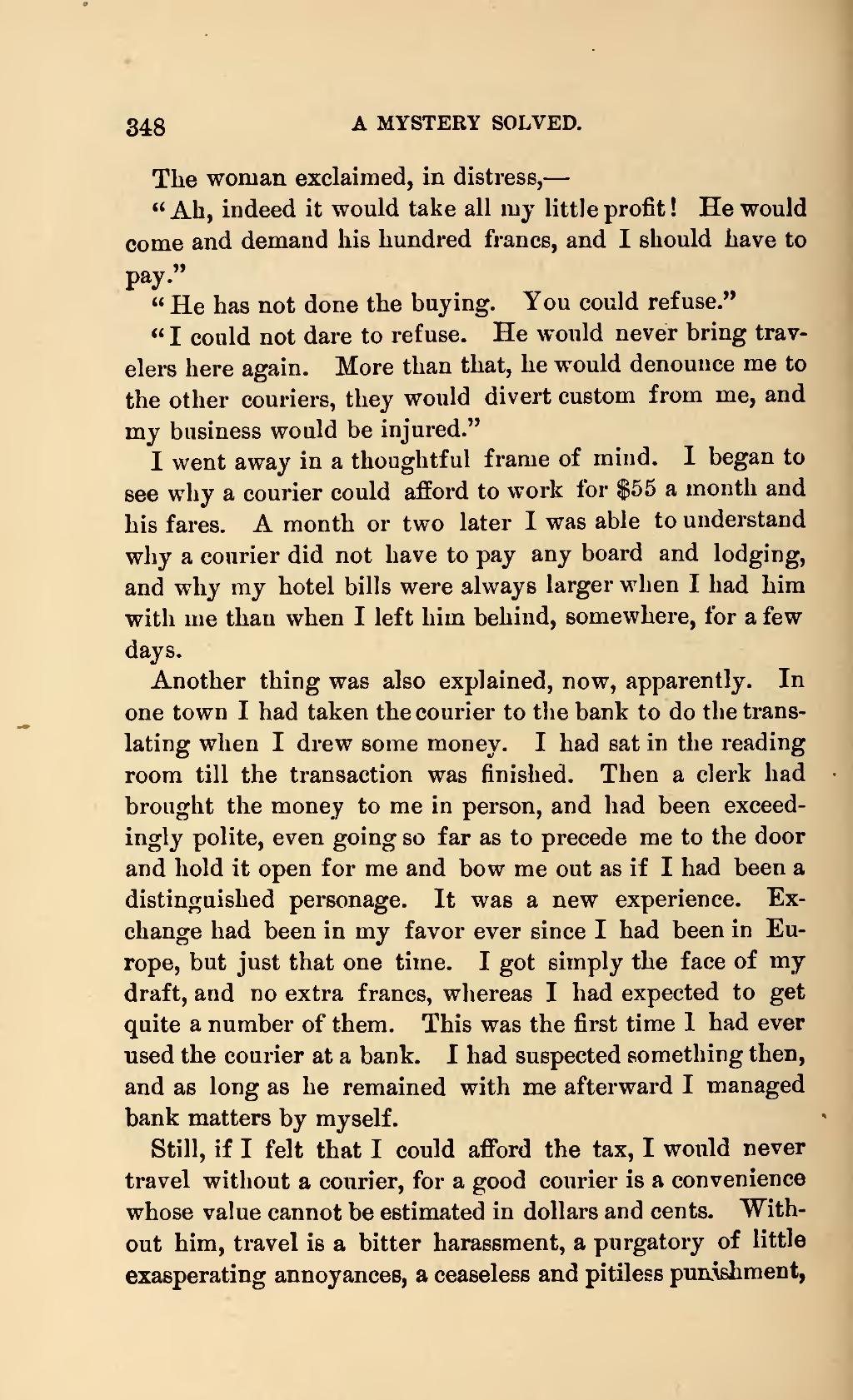The woman exclaimed, in distress,—
"Ah, indeed it would take all my little profit! He would come and demand his hundred francs, and I should have to pay."
"He has not done the buying. You could refuse."
"I could not dare to refuse. He would never bring travelers here again. More than that, he would denounce me to the other couriers, they would divert custom from me, and my business would be injured."
I went away in a thoughtful frame of mind. I began to see why a courier could afford to work for $55 a month and his fares. A month or two later I was able to understand why a courier did not have to pay any board and lodging, and why my hotel bills were always larger when I had him with me than when I left him behind, somewhere, for a few days.
Another thing was also explained, now, apparently. In one town I had taken the courier to the bank to do the translating when I drew some money. I had sat in the reading room till the transaction was finished. Then a clerk had brought the money to me in person, and had been exceedingly polite, even going so far as to precede me to the door and hold it open for me and bow me out as if I had been a distinguished personage. It was a new experience. Exchange had been in my favor ever since I had been in Europe, but just that one time. I got simply the face of my draft, and no extra francs, whereas I had expected to get quite a number of them. This was the first time I had ever used the courier at a bank. I had suspected something then, and as long as he remained with me afterward I managed bank matters by myself.
Still, if I felt that I could afford the tax, I would never travel without a courier, for a good courier is a convenience whose value cannot be estimated in dollars and cents. Without him, travel is a bitter harassment, a purgatory of little exasperating annoyances, a ceaseless and pitiless punishment,

